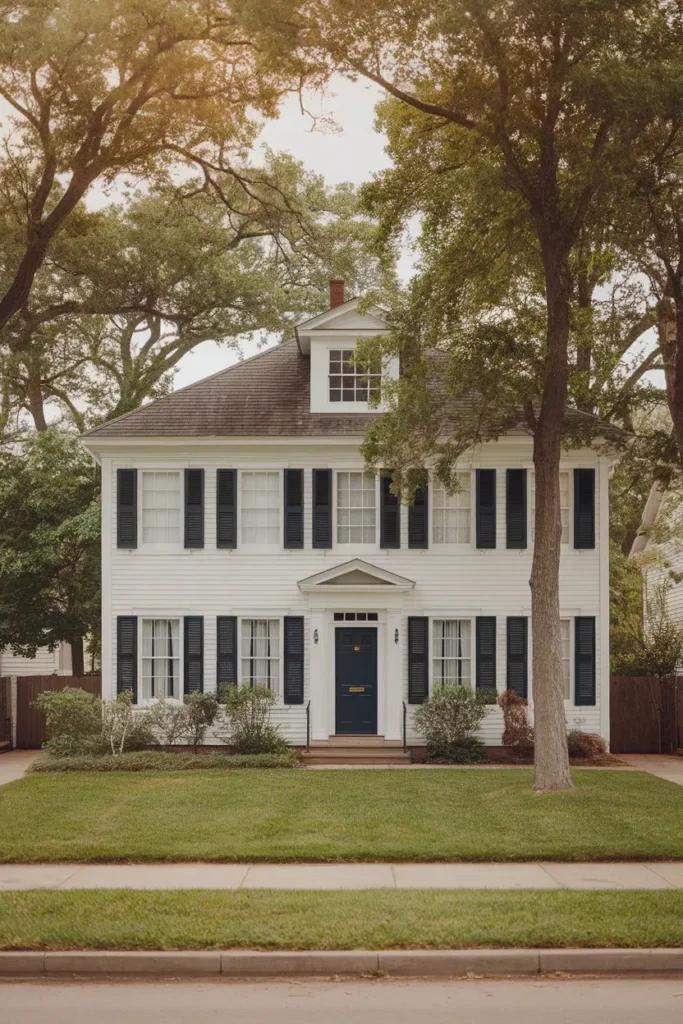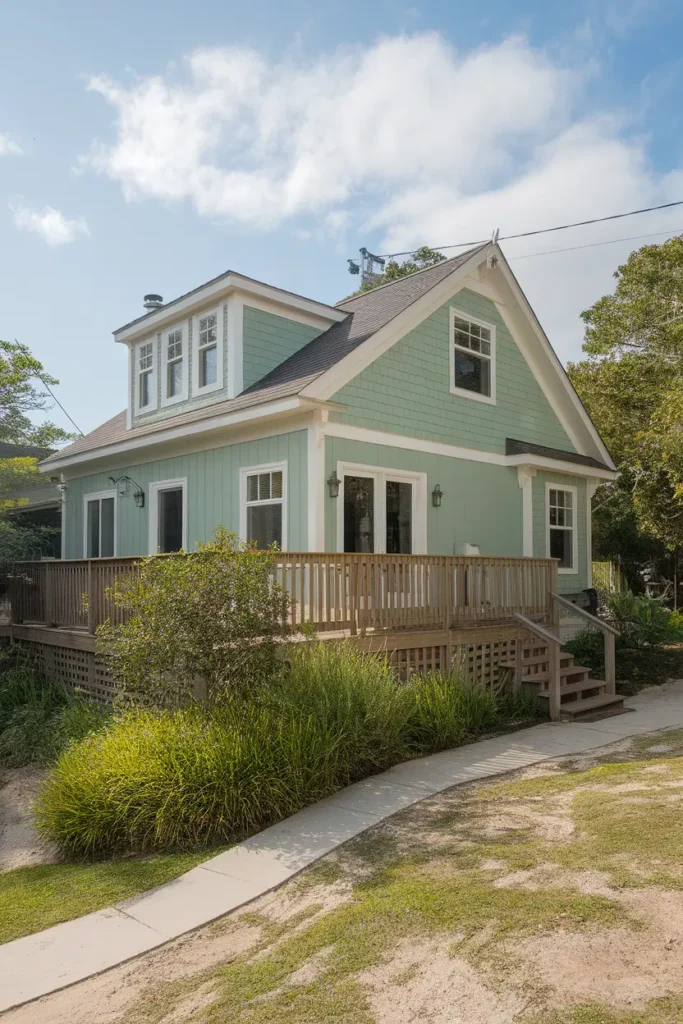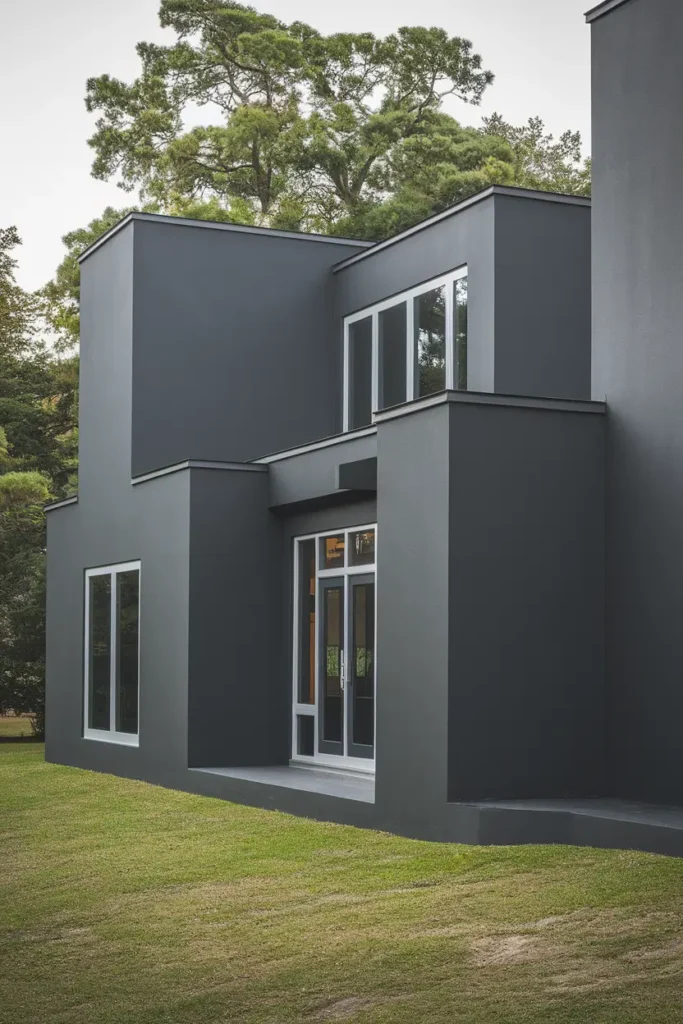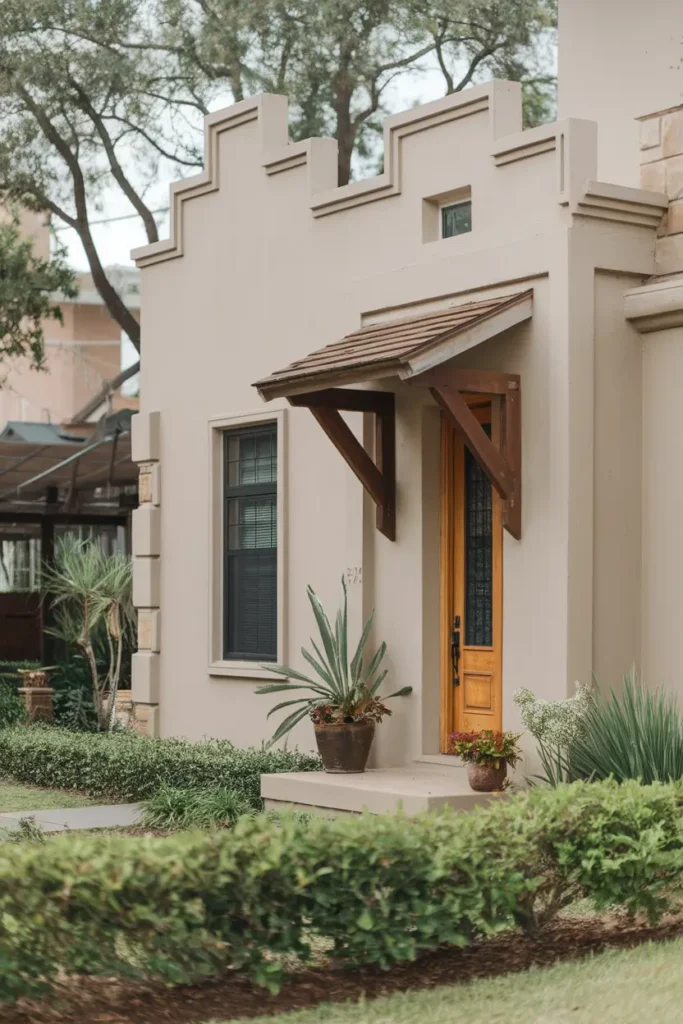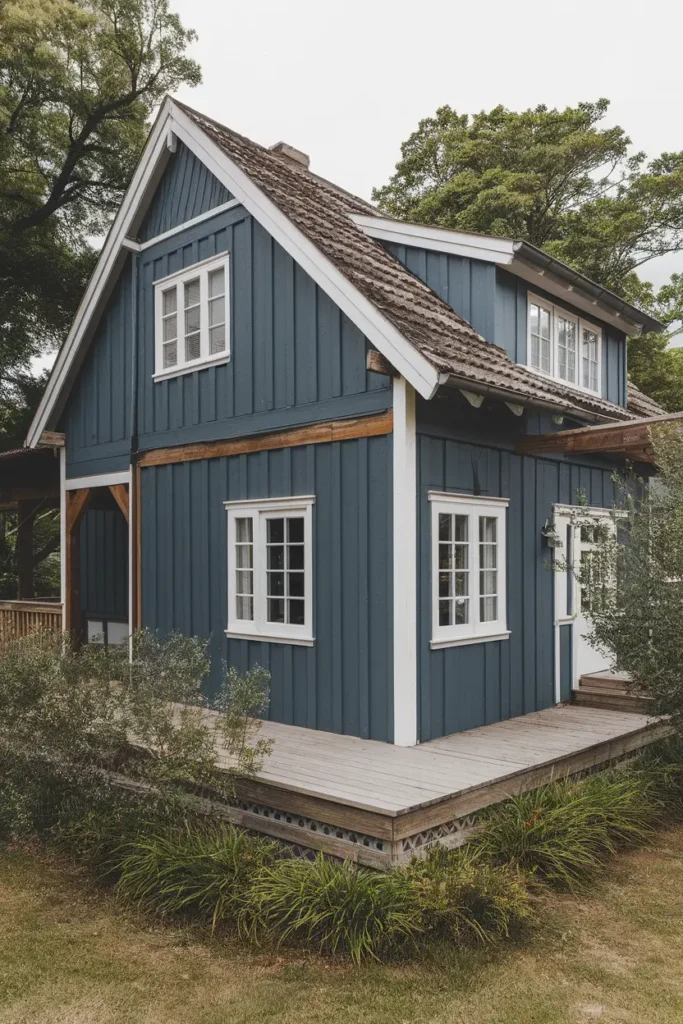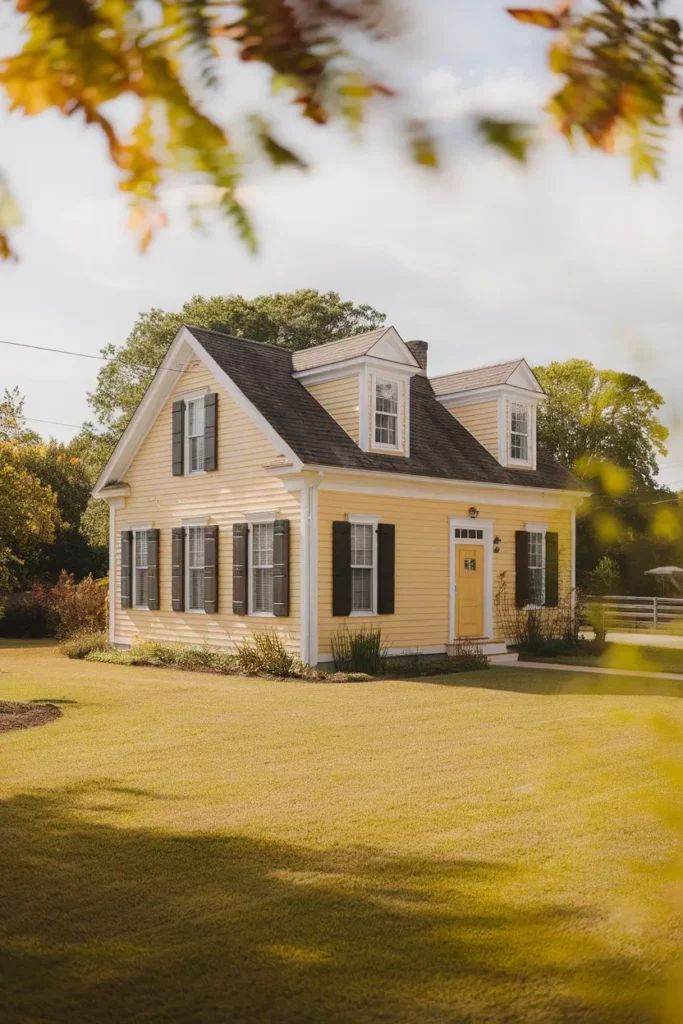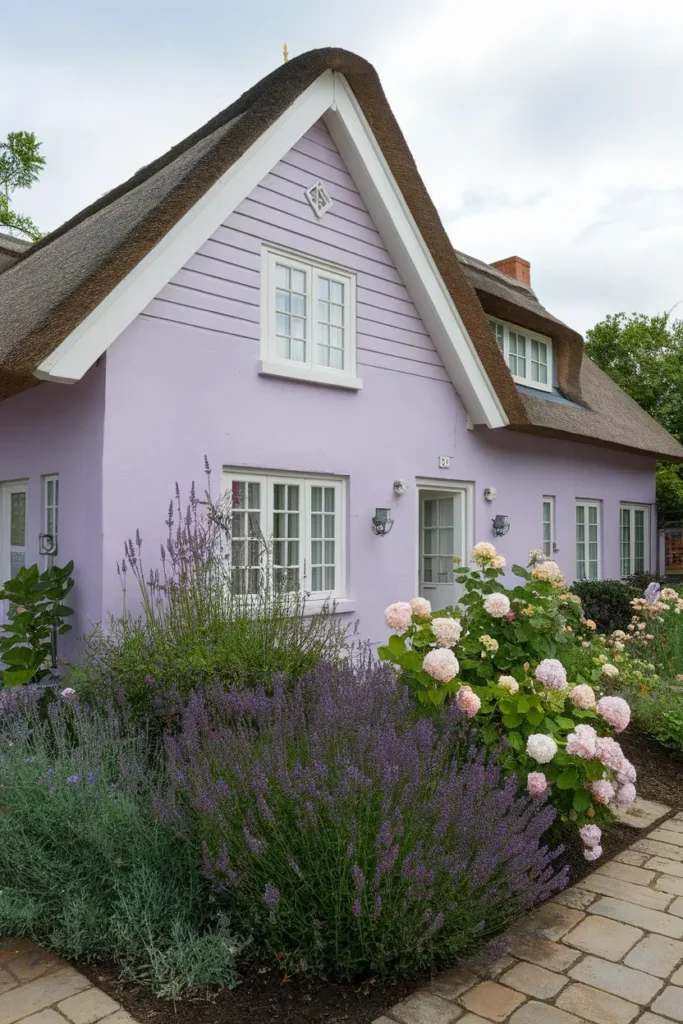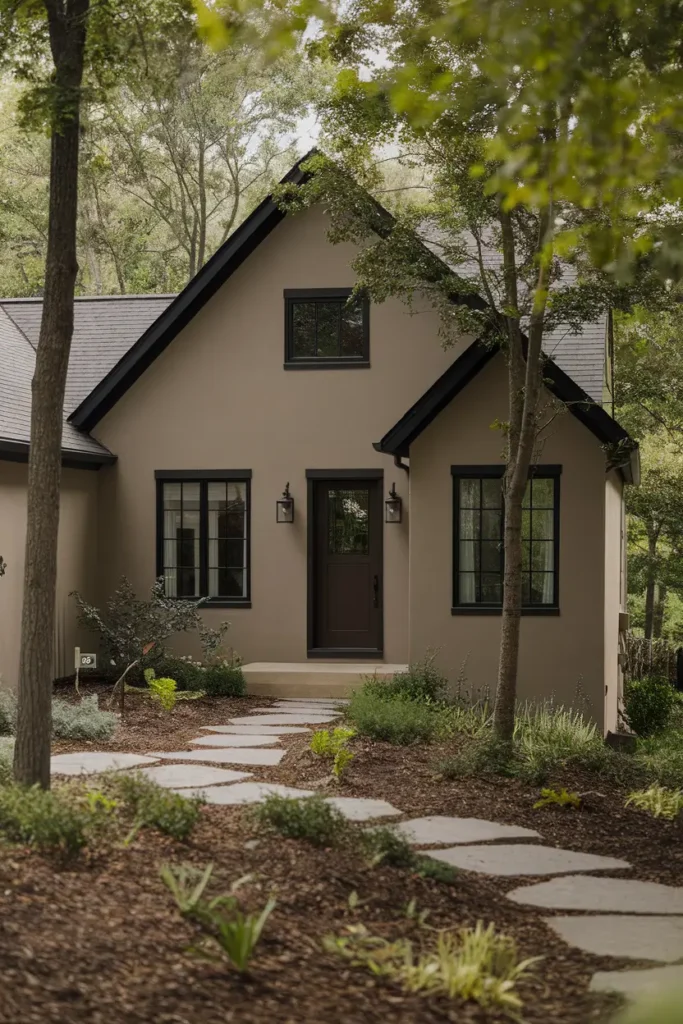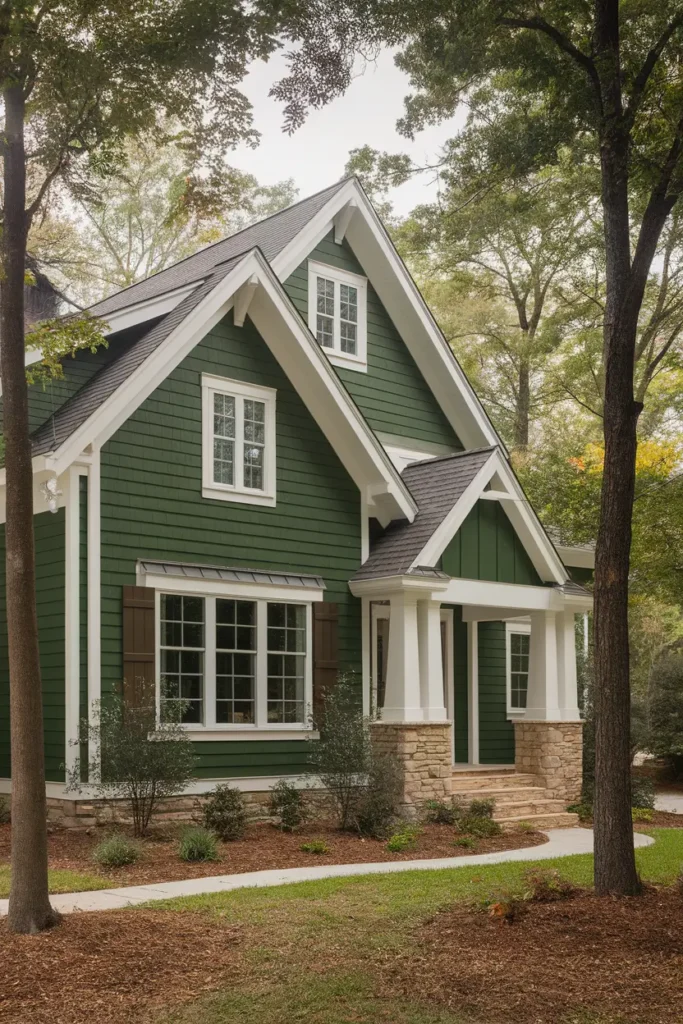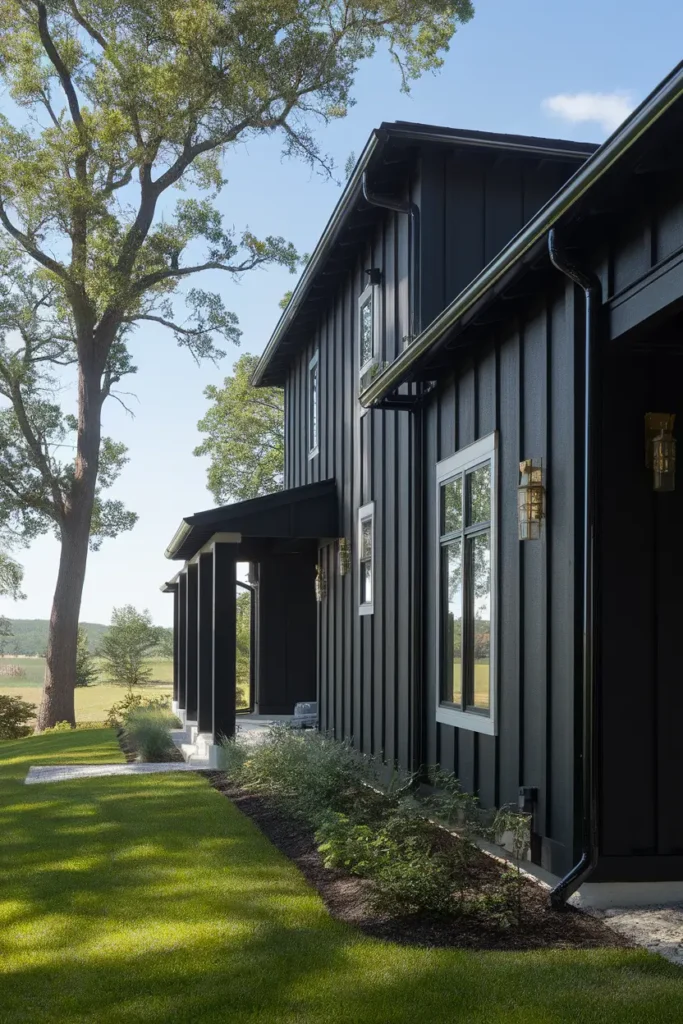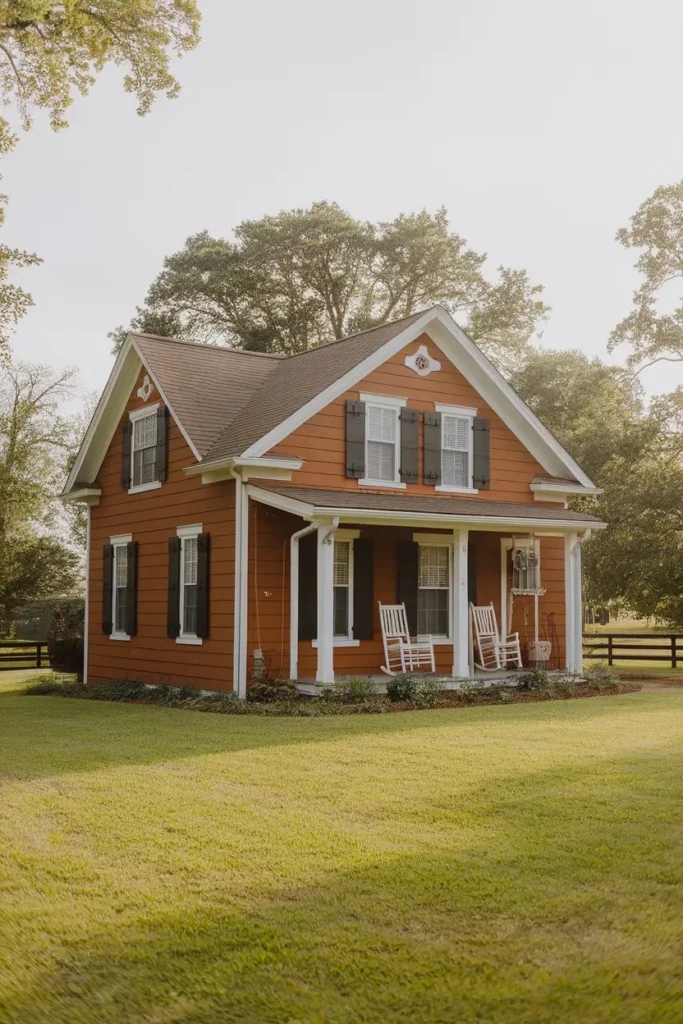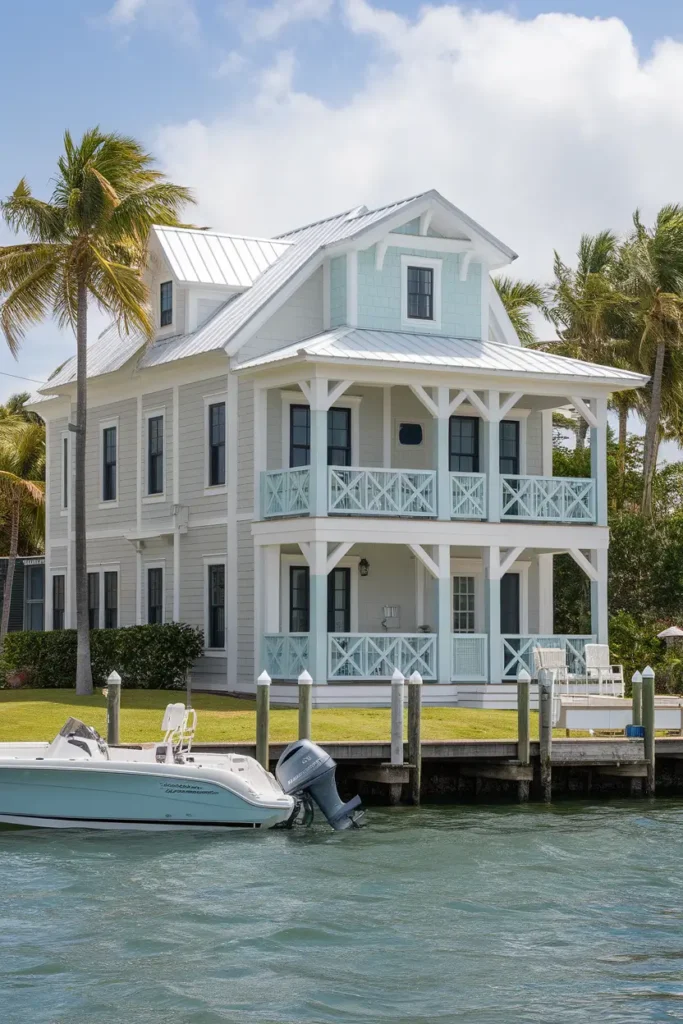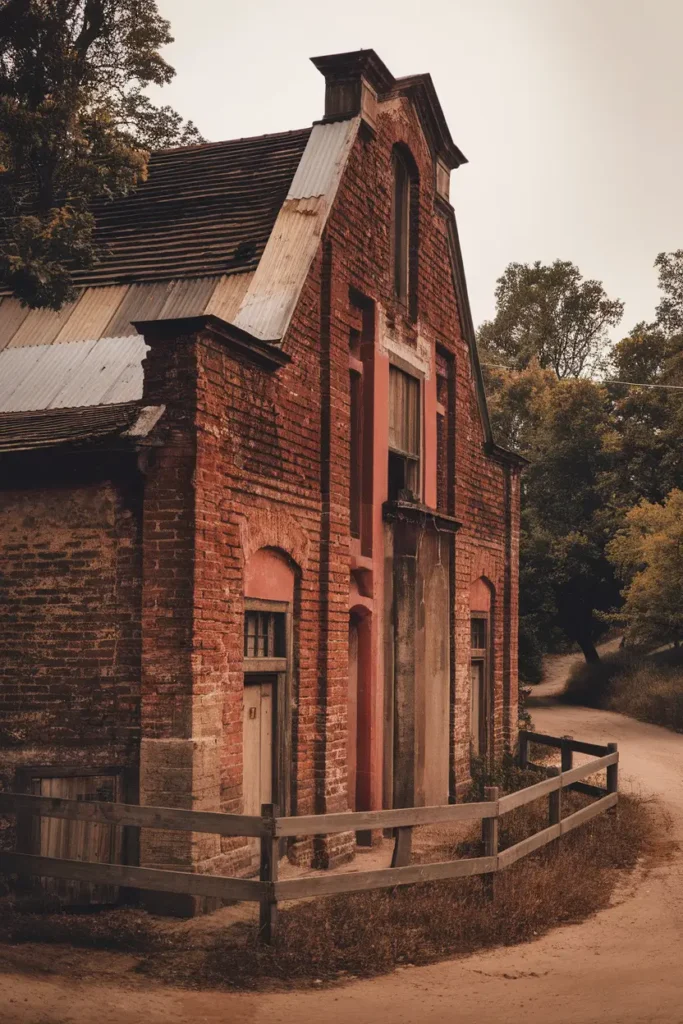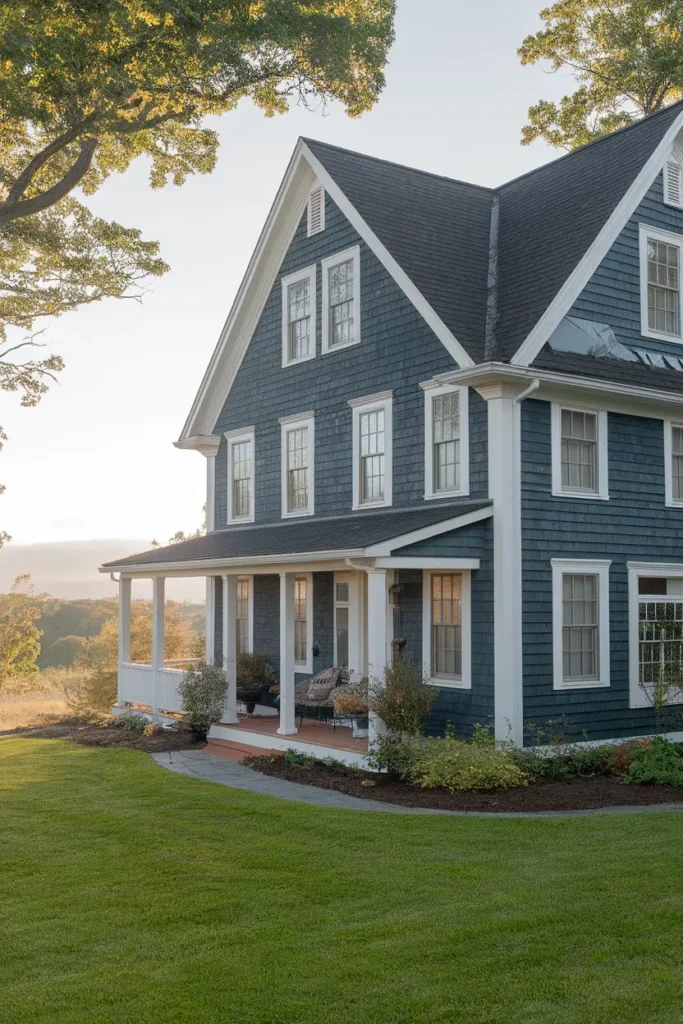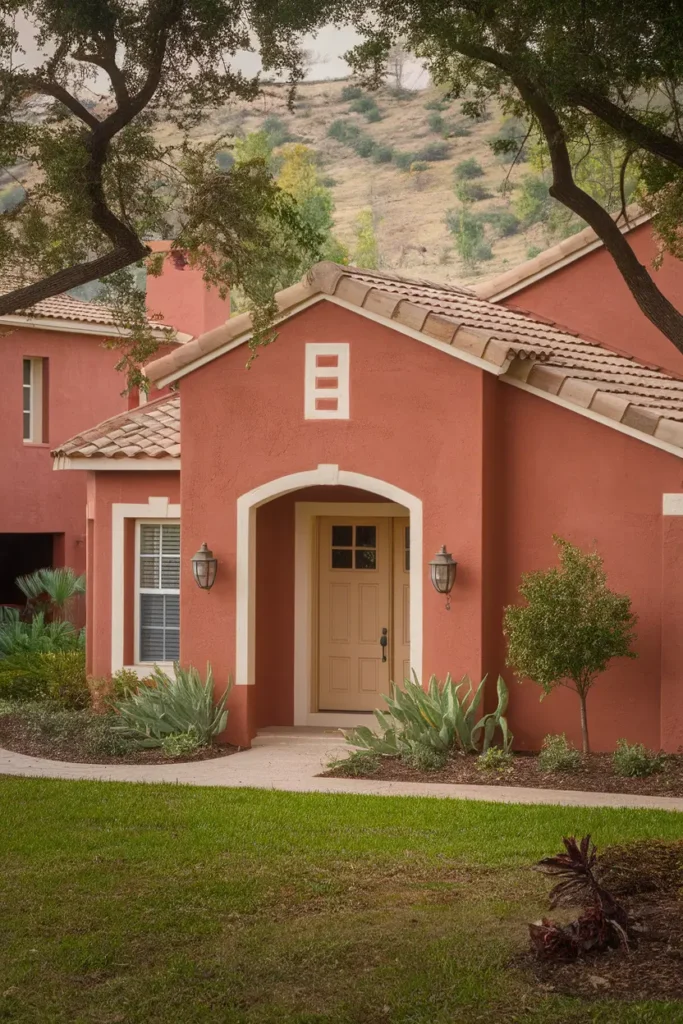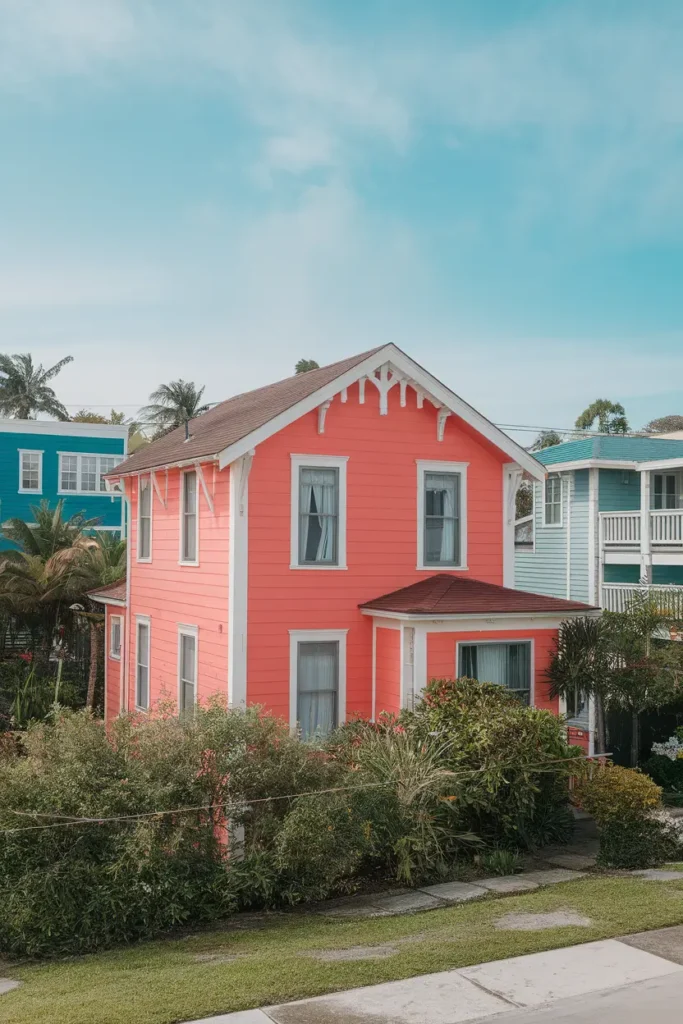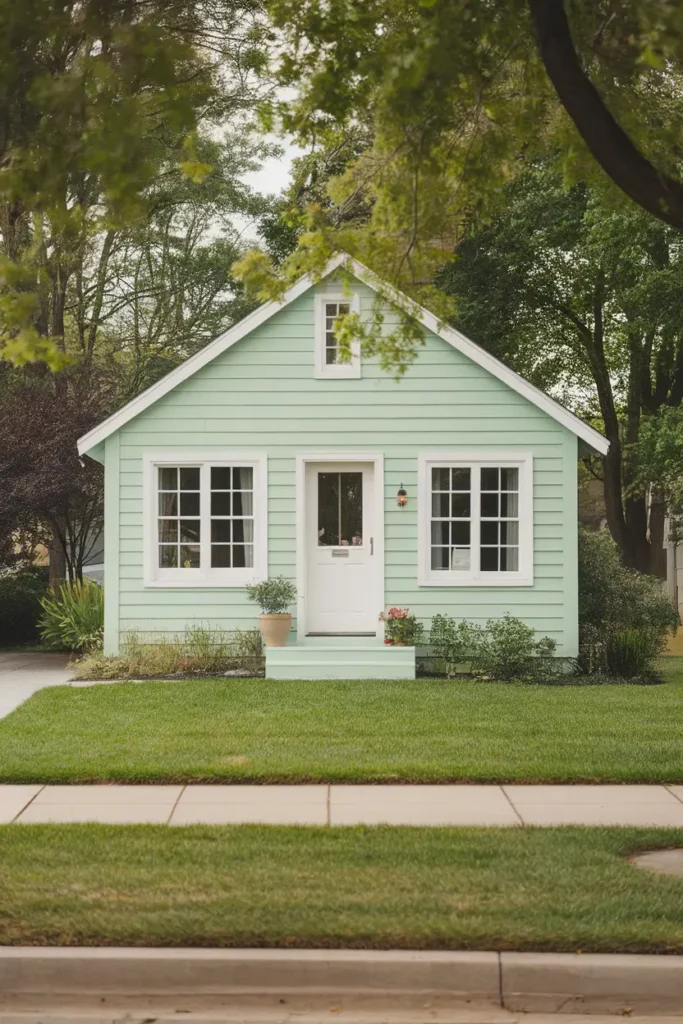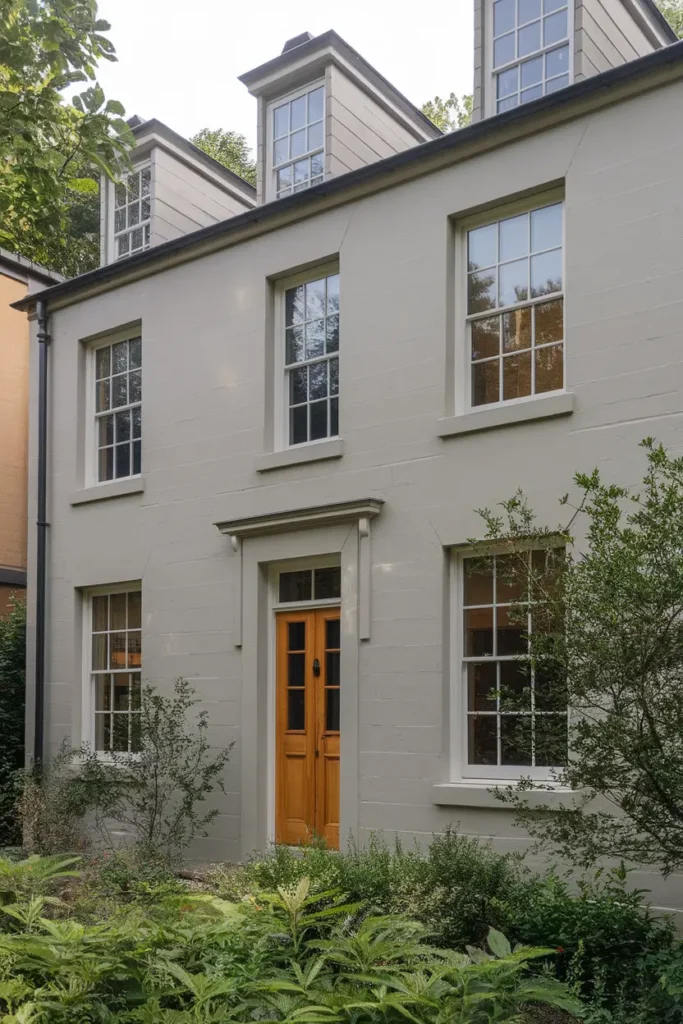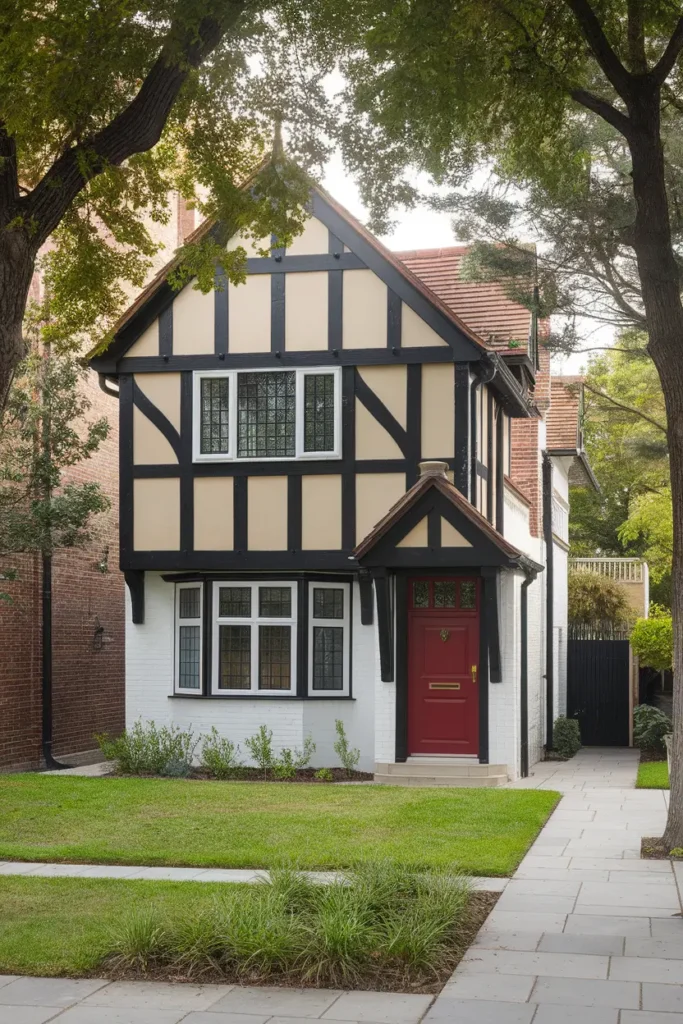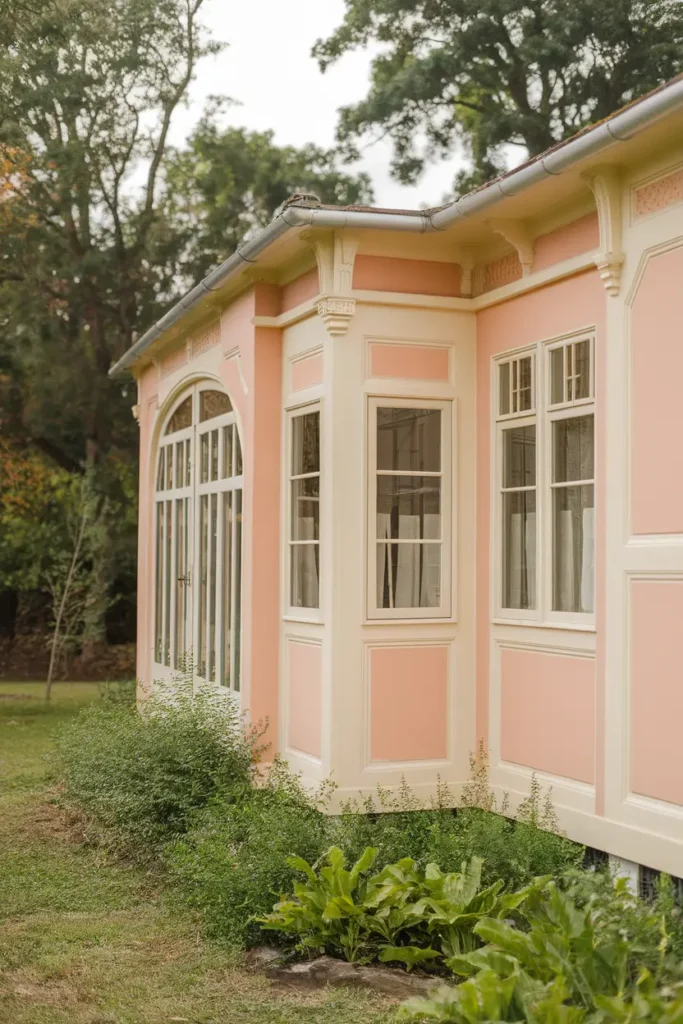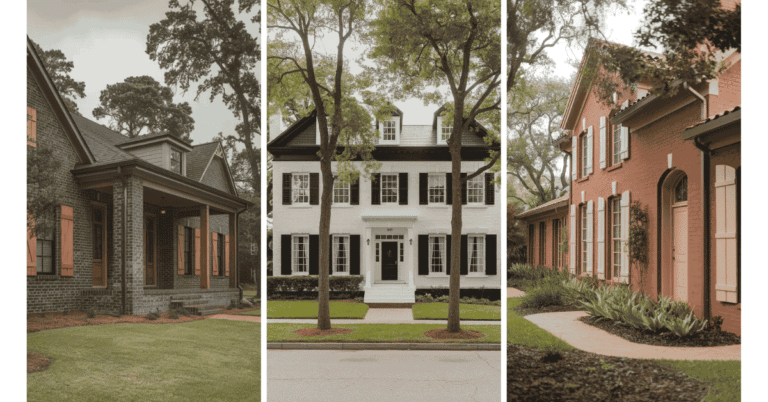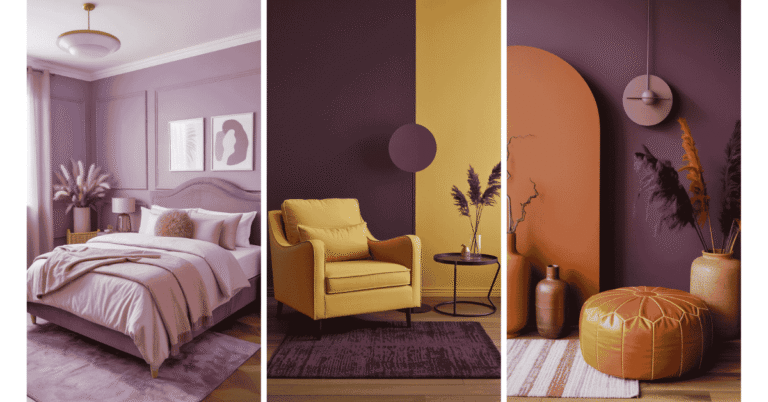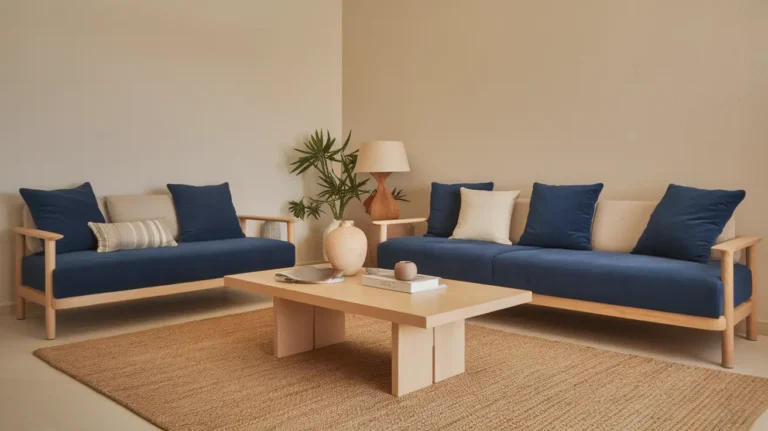20 Stunning Outdoor House Paint Colors to Boost Curb Appeal 🎨🏡
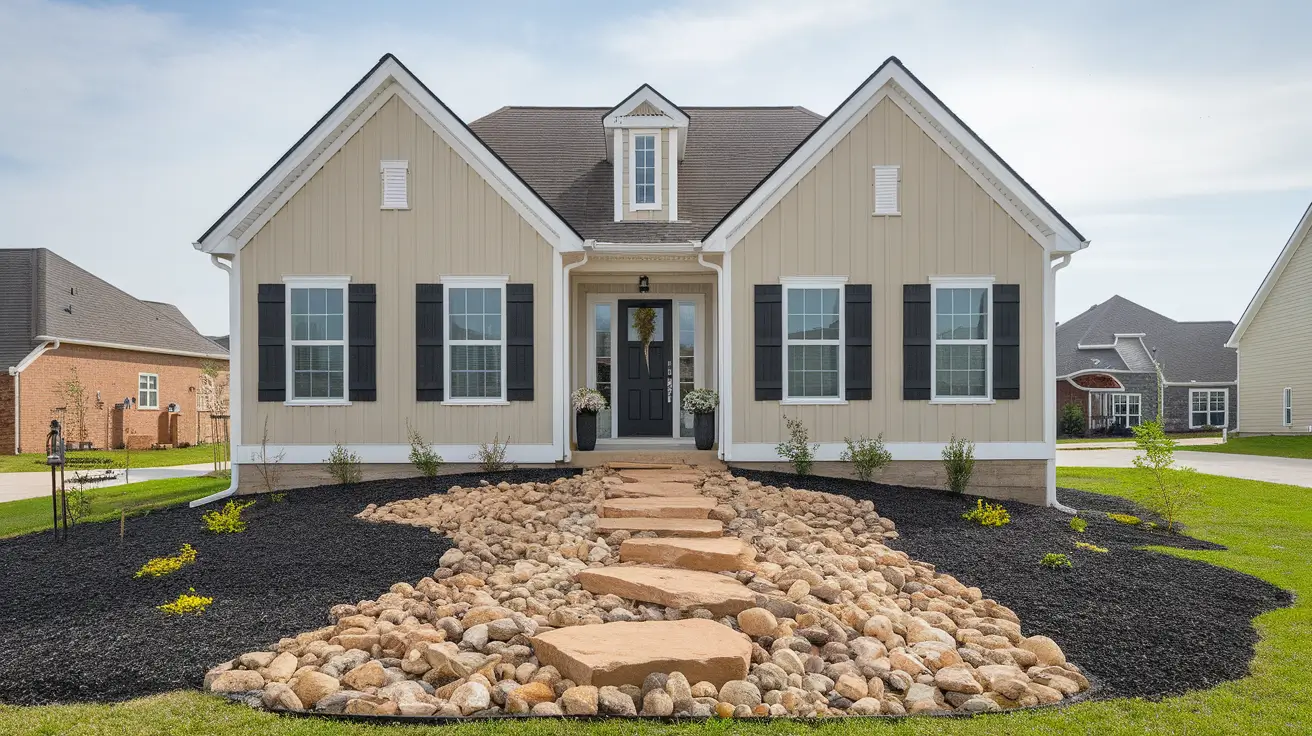
A house’s exterior color is more than just a shade to make it look finished—it’s a statement that sets the tone for the entire property.
The right choice can reflect the homeowner’s personality, complement the natural surroundings, and even elevate the property’s curb appeal, potentially increasing its value.
Whether you’re looking to refresh a dated façade or starting from scratch with a new build, selecting the perfect paint color is an important decision that can transform the overall look and feel of your home.
From timeless neutrals to bold, eye-catching hues, the options are endless, but the decision shouldn’t be rushed. Here’s a deep dive into 20 show-stopping outdoor house paint colors to inspire your decision.
20 Outdoor House Paint Colors
1. Classic White
Timeless and versatile, a crisp white exterior never goes out of style. It exudes elegance, purity, and simplicity, making it a safe yet impactful choice for any architectural design.
Pair it with contrasting black shutters for a traditional look or a bold-colored front door like red or navy blue to add character and a pop of personality.
A white exterior also reflects sunlight, keeping your home cooler in warmer climates.
2. Seafoam Green
For a breezy, coastal charm, seafoam green brings a sense of brightness and tranquility to your home.
This soft, refreshing color creates a relaxed, airy feel that pairs beautifully with white trims, sandy beige tones, or light wooden accents.
It’s especially fitting for waterfront homes, beach houses, or properties surrounded by lush landscaping, as it blends harmoniously with the natural surroundings.
3. Charcoal Gray
Modern, sleek, and striking, charcoal gray makes a bold statement while offering a versatile base.
This deep hue works well for contemporary homes or urban architecture, creating a clean and sophisticated look.
Pair it with contrasting trims in crisp white, light gray, or even metallic accents to highlight architectural features.
Charcoal gray’s rich tone also hides dirt and weathering better than lighter colors, making it a practical yet stylish choice.
4. Soft Beige
Warm and inviting, soft beige is a neutral color that offers timeless versatility. This shade works wonderfully with a variety of textures, such as stone, brick, or wood, enhancing the architectural details of your home.
It serves as the perfect backdrop for colorful landscaping, like vibrant flowers or green hedges, creating a balanced and polished curb appeal.
Beige is also an excellent choice for homeowners seeking a cozy and approachable aesthetic.
5. Slate Blue
A sophisticated and calming choice, slate blue offers a refined yet welcoming look for your home’s exterior.
This muted blue pairs wonderfully with crisp white trims, natural wood elements, or even stone accents, creating a balanced and elegant design.
The subtle gray undertones in slate blue make it an excellent option for projecting a calm, serene atmosphere while maintaining a modern edge. It’s ideal for homes in both suburban and rural settings.
6. Sunny Yellow
Bright and cheerful, sunny yellow creates an inviting and uplifting vibe for your home.
This vibrant shade is perfect for those looking to make a bold statement while radiating warmth and positivity.
Pair it with clean white trims and dark shutters to balance the brightness, ensuring it doesn’t become overwhelming.
Sunny yellow is a great choice for homes in sunny regions, where it complements the natural light beautifully.
7. Pale Lavender
For a soft, whimsical touch, pale lavender adds charm and uniqueness without being overpowering.
This delicate hue is perfect for cottage-style homes or properties with floral landscaping, as it complements gardens filled with lavender, hydrangeas, or roses.
Pale lavender works beautifully with white trims, light gray accents, or even warm wood tones to create a serene and enchanting look.
8. Earthy Taupe
Earthy taupe bridges the gap between gray and beige, offering a grounded, natural look that feels warm yet modern.
This versatile shade pairs seamlessly with wooded surroundings, stone pathways, and green landscaping, making it an excellent choice for homes in rural or forested areas.
Add dark brown or black accents to give the exterior more depth, or incorporate natural wood finishes for a rustic, cozy vibe.
9. Rich Forest Green
A timeless classic, rich forest green brings a harmonious, natural feel to homes surrounded by trees or other natural backdrops.
This deep green shade blends beautifully with wooded landscapes, creating a seamless connection between the house and its surroundings.
Pair it with white trims, brass hardware, or stone features for added contrast and sophistication. Forest green is perfect for homeowners seeking a bold yet organic aesthetic.
10. Crisp Black
Bold and dramatic, a crisp black exterior can elevate your home’s aesthetic to an entirely new level of modern sophistication.
While unconventional, black creates a powerful statement and exudes luxury when paired with brass hardware, sleek outdoor lighting, or contrasting white trims.
This color works particularly well for contemporary homes or minimalist designs, offering a striking contrast to natural elements like greenery, wood, or stone.
11. Burnt Orange
Warm, bold, and eye-catching, burnt orange is a color that brings energy and richness to any exterior.
It works especially well in southwestern or desert landscapes, where it complements earthy surroundings.
Pair it with muted desert tones like beige, sand, or olive green for a harmonious and grounded look that feels natural yet vibrant.
12. Ivory and Aqua
A classic coastal combination, ivory walls paired with aqua accents bring a refreshing and breezy vibe to any home.
This palette is perfect for beach houses or homes near the water, as it evokes the calming feel of the ocean and sandy shores. Add pops of navy or light gray for extra depth and contrast.
13. Brick Red
Rustic, nostalgic, and full of character, brick red is a timeless color that evokes a sense of historic charm and warmth. This rich, earthy hue brings to mind classic architecture, old-world charm, and a grounded, natural aesthetic.
It pairs beautifully with stone accents, warm wood tones, or crisp white trims, creating a balanced and inviting look that feels both sophisticated and approachable.
Brick red works particularly well in rural or traditional settings, where it enhances the cozy, lived-in feel of the surroundings.
14. Wedgewood Blue
Reminiscent of classic New England charm, Wedgewood Blue is a versatile color that conveys both tradition and vibrancy.
This soft, muted blue works especially well with white details like shutters, trim, or fences, giving homes a crisp and polished appearance. It’s a great choice for those seeking a timeless yet approachable look.
15. Terracotta
With its warm orange-brown hues, terracotta offers an earthy, Mediterranean-inspired look that exudes charm and sophistication.
It’s an excellent choice for stucco or adobe-style homes, particularly in regions with warm climates. Pair it with natural materials like stone or wood to enhance its rustic appeal.
16. Bright Coral
For those who love to stand out, bright coral is an energizing and creative choice that commands attention.
This vibrant hue works best when balanced with neutral trims like white, gray, or cream to avoid overwhelming the eye.
Perfect for tropical or sunny locations, coral adds a playful, cheerful vibe to any exterior.
17. Cool Mint
Mint green is a soft, vintage-inspired color that’s perfect for small homes, cottages, or bungalows. Its light and airy feel makes it incredibly inviting and great for creating a nostalgic aesthetic.
Pair it with soft white trims or pale yellow accents to enhance the warmth and charm of your home.
18. Stone Gray
The ultimate neutral, stone gray offers sophisticated flexibility for any style of home, whether you prefer traditional, contemporary, or minimalist designs.
This elegant and versatile shade provides a clean, polished canvas that pairs beautifully with bold accents, like a bright-colored front door, shutters, or even contrasting trim.
Its understated tone allows you to experiment with different textures, materials, and pops of color, giving your home a personalized yet cohesive look.
19. Black, White, and Ruby Red
This striking trio is perfect for homeowners who want to channel Tudor-style charisma. Black timber accents combined with white stucco walls create a bold, dramatic contrast.
While a ruby red front door adds a pop of color that feels both inviting and regal.
This combination is ideal for those who appreciate classic architectural styles.
20. Soft Peach
Soft peach tones bring subtle warmth and brightness to a home’s exterior, creating a look that feels cheerful without being overpowering.
This hue looks particularly stunning when paired with creamy white trim and accents, which enhance its softness and elegance.
Ideal for sunny climates, soft peach adds a touch of understated charm to any home.
Factors to Consider When Choosing Your Outdoor Paint Color
Your Home’s Architecture
The architectural style of your home plays a huge role in determining the right color palette. For example:
- Colonial homes typically look best in traditional whites and blues.
- Victorian homes, on the other hand, provide an opportunity to experiment with bolder, multi-tone combinations.
Landscape and Surroundings
Consider how your house fits within the surrounding environment. Do you live by the beach, in the woods, or within an urban neighborhood?
Colors like forest green or earth tones blend beautifully in a natural setting, while whites and pastels are great for coastal areas.
Neighborhood Trends
While you want your house to stand out, it’s also important to ensure it doesn’t clash with your neighborhood’s aesthetic.
FAQs
How many colors should you use for your house exterior?
Generally, use three colors for an exterior color scheme. The main color for siding. A contrasting color for the trim. An accent color for details like shutters, doors, and railings.
What’s the best type of paint for outdoor projects?
Look for exterior-grade paint that is durable and weather-resistant. Satin or eggshell finishes work well for siding, while semi-gloss or gloss finishes are ideal for trims and doors.
How often should you repaint your house exterior?
Most homes need repainting every 5 to 10 years, depending on the quality of paint used, exposure to sunlight, and the local climate.
Bottom Lines
Picking the perfect outdoor paint color is a creative process that combines personal style with practical considerations.
Whether you dream of a classic white exterior or a modern charcoal gray look, your choice will drastically influence how your home is perceived.
Still feeling uncertain? Reach out to professional ideas who specialize in exterior color. With the right guidance, your home will have the curb appeal and personality it deserves.

